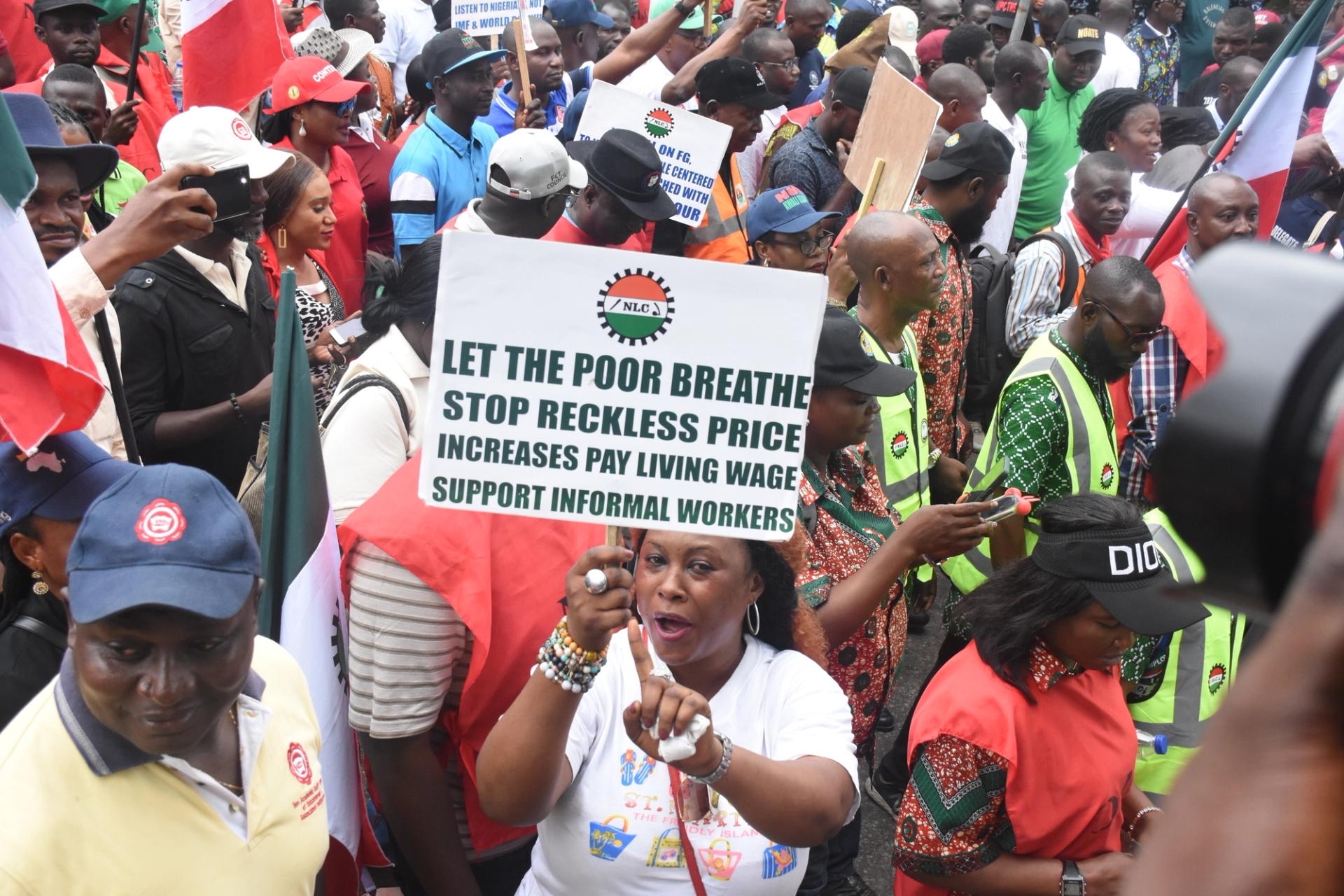President Bola Ahmed Tinubu has embarked on bold reforms aimed at transforming Nigeria’s economy and alleviating widespread hardship. These sweeping measures promise a brighter future, but their immediate toll on Nigerians raises concerns. Can these reforms deliver on their lofty promises, or will they deepen existing inequalities? Let’s unpack the key policies, their impacts, and the challenges ahead.
Key Reforms Under Tinubu’s Administration
1. Fuel Subsidy Removal:
One of Tinubu’s most controversial moves was eliminating the fuel subsidy. While the government touted this as a necessary step to free up funds for development, it led to a sharp increase in fuel prices, which tripled within months, driving up transportation and food costs.
2. Currency Unification:
The unification of Nigeria’s exchange rate aimed to attract foreign investment and stabilize the economy. However, it triggered a rapid devaluation of the naira, now trading at over ₦1,750/$ on the black market, leaving businesses and households grappling with higher import costs.
3. Tax Reforms:
To broaden Nigeria’s tax base, the government introduced new measures targeting previously untaxed sectors. While this could increase revenue, critics argue that it disproportionately affects small businesses and the informal sector, which constitute over 60% of the economy.
Economic Realities
While these reforms aim to address structural inefficiencies, their immediate effects have been severe for households and businesses:
• Rising Inflation:
Nigeria’s inflation rate surged to 28.9% in October 2024, its highest level in nearly two decades, making basic commodities unaffordable for many families.
• Unemployment Woes:
Small and medium enterprises (SMEs), already burdened by high costs, have reported mass layoffs. Youth unemployment, a longstanding issue, has worsened as businesses scale down operations.
• Poverty Levels:
Over 65% of Nigerian households now struggle to afford healthy meals, according to recent reports. The World Bank estimates that an additional four million Nigerians could fall into extreme poverty by 2025 if inflation persists.

Promises of Long-term Gains
The government argues that these hardships are temporary and necessary for sustainable growth. Key projected benefits include:
• Subsidy Savings for Development:
Funds saved from removing fuel subsidies are being redirected into infrastructure projects such as roads, railways, and healthcare facilities. Early projects include the Abuja-Lagos rail modernization and the rehabilitation of key highways.
• Improved Foreign Exchange Liquidity:
Currency unification, though painful in the short term, is expected to attract foreign investment and reduce speculative trading on multiple exchange rates.
• Increased Revenue for Social Programs:
Tax reforms could provide the government with additional resources to fund education, healthcare, and job creation initiatives.
The Human Impact: Voices from the Ground
The immediate effects of these reforms are felt deeply across Nigeria.
• Ibrahim Musa, a farmer in Kano, shared his struggles:
“Fertilizer prices have doubled since the subsidy removal. I can’t afford to cultivate as much land, which means less food for my family and others.”
• Chinyere Okafor, a shop owner in Lagos, echoed similar concerns:
“The cost of transporting goods has skyrocketed. I’ve had to increase prices, but my customers can barely afford them.”
While the government’s rhetoric centers on future benefits, many Nigerians are asking: what relief is available today?
Challenges to Success
For Tinubu’s reforms to deliver on their promises, several hurdles must be addressed:
1. Implementation Bottlenecks:
Delays and inefficiencies in rolling out development projects have undermined public trust.
2. Public Distrust:
Years of corruption and mismanagement have left Nigerians skeptical about whether subsidy savings and tax revenues will be used effectively.
3. Global Economic Uncertainty:
External factors, such as fluctuating oil prices and global inflation trends, could offset domestic reform gains.
4. Lack of Social Safety Nets:
Critics argue that the government must introduce targeted interventions, such as direct cash transfers or food subsidies, to cushion the vulnerable population.
Reactions from Experts and Stakeholders
Economists and international organizations have weighed in on the reforms:
• Dr. Ngozi Okonjo-Iweala, Director-General of the World Trade Organization, remarked:
“Nigeria’s reforms are ambitious and necessary. However, their success depends on transparency and ensuring that the most vulnerable are supported during this transition.”
• World Bank Report (October 2024):
The World Bank praised the currency unification policy but warned that rising inflation and poverty levels could erode public support for the reforms.
Conclusion: A Balancing Act
Tinubu’s reforms represent a bold attempt to reset Nigeria’s economic trajectory. However, the government must act swiftly to address the immediate hardships these policies create. Transparent allocation of subsidy savings, targeted social interventions, and robust monitoring mechanisms will be crucial to ensuring that the benefits of these reforms are widely felt.
As Nigerians endure this period of economic turbulence, the administration’s ability to balance short-term pain with long-term gains will define the legacy of these reforms. The question remains: will these policies pave the way for a sustainable future, or will they deepen existing inequalities? Only time will tell.
